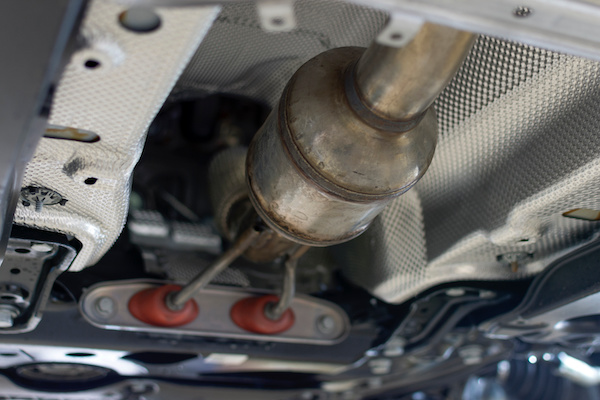
What is a catalytic converter, and how can you tell if it's dysfunctional? A catalytic converter is one of your car's most important resources, reducing emissions and pollution. Located in the exhaust chamber, it is filled with a platinum/palladium mixture and converts harmful emissions into non-harmful gasses. There are five ways you can tell if your catalytic converter isn't working correctly:
Your engine will perform more poorly. Because it is built into the exhaust system which corresponds systemically with your engine, if it is faulty, you will notice lower power or acceleration. In addition, as is expected with a car component that should increase fuel economy, you may notice a reduction of this feature.
You may hear a very distinct rattling noise coming from the underside of your vehicle. This is usually caused by internal damage over time from over-rich fuel mixtures, which can cause the meshes inside the converter to collapse or break. The rattle will be most obvious when starting your car, but will continue to worsen with more use. It's good to nip it in the bud.
Sulfuric smell - Your exhaust pipes may emit a particularly pungent sulfur smell. The reason for this is that a properly functioning catalytic converter is supposed to convert hydrogen sulfide – the byproduct of engine combustion – into harmless and odorless sulfur dioxide. If the converter is faulty, you may notice a particularly pungent rotten-egg smell coming from the exhaust pipes. Talk about obvious!
The "check engine" light may come on. Again, the converter is supposed to catalyze harmful and odorful gasses into harmless and odorless ones. Modern vehicles equipped with the right systems should be able to track this catalysis through gas levels. If the converter isn't functioning properly, your car will trigger the "check engine" light.
Lastly...a failed emissions test. States with high emissions and environmental standards often require regular emissions diagnostics for your vehicle to be legally operational. A faulty catalytic converter will automatically cause such tests to fail.
With this car part being so integral to the functioning of a well-oiled machine, if you need catalytic converter repair, give our auto repair shop a call today!